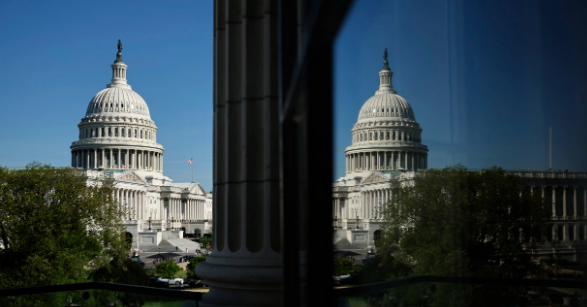Washington – The Senate voted to authorize a powerful surveillance tool again, which the US government describes as critical for dealing with terrorism, after failing efforts by civil liberties advocates on the left and right to rein it in.
The 60-34 vote sends the bill to President Joe Biden, who has supported it. The law extends Section 702 of the Foreign Intelligence Surveillance Act, or FISA, for two more years.
The final vote came after Senators defeated six amendments from progressive and conservative Senators, who argued that surveillance powers are too broad and pose a threat to Americans’ civil liberties and privacy. The Biden administration and FISA supporters had warned that even slight changes could have harmful effects on the process of gathering classified intelligence.
Senators missed the midnight deadline to reauthorize the FISA Section 702 law, but minutes later, voted to reauthorize it. If any amendments had been adopted, the bill would have been sent back to the Senate, potentially ending the law’s long-term extension.
Senate Majority Leader Chuck Schumer, D-N.Y., said, “For some time now, bipartisanship has reigned here in the Senate.”
“It wasn’t easy; people had many different views, but we all know one thing: letting FISA expire would be dangerous,” Schumer said in the Senate, adding that stopping terrorism, drug trafficking, and violent extremism are critical parts of our national security. “I thank all of my Senate colleagues on both sides of the aisle for their good work in getting this done.”
During the surveillance of foreigners, the Senate last week passed a two-year FISA reauthorization, defeating, by a slim margin, an amendment to require a warrant to search Americans’ communications collected as part of data collected during the surveillance. Intelligence Committee chairman and vocal advocate for privacy and security Senator Ron Wyden, D-Ore., said, “It’s important for people to understand how sweeping this bill is.”
“At the last minute, some things were added that will essentially force someone like an ordinary person to spy for the government,” Wyden said in the Senate, adding, “They will compel that person to do so, and there will be no appeal.”
Schumer, in a rare break with Biden, said, “I’m deeply concerned that the expansion of FISA Section 702 authorities will lead to misuse and abuse – here at home, violating Americans’ rights.”
Senate Intelligence Committee chairman Mark Warner, D-Va., excluded and dismissed last week the House amendments and other criticisms added to the FISA reauthorization bill, arguing that it is “focused on an important intelligence gap,” but some members like Wyden are worried it could be exploited.
Warner said in the Senate on Wednesday, “Some who are saying otherwise, this bill explicitly excludes things like coffee shops, bars, restaurants, housing, hotels, libraries, entertainment venues, and similar establishments.” “It won’t allow the government, as some critics have said, to force, for example, a security guard working in an office building in Northern Virginia to spy for the intelligence community.”
Warner said that not reauthorizing FISA would put America in “uncharted territory” because companies working with the government to provide classified information would stop doing so without reauthorization.
Senator John Cornyn, R-Texas, said, “About 60% of the President’s daily briefings are made up of 702-derived material, so this bill is absolutely critical.”



